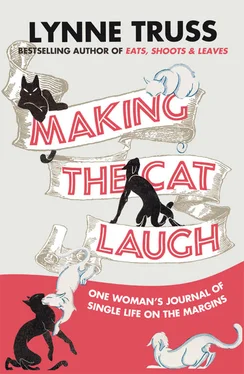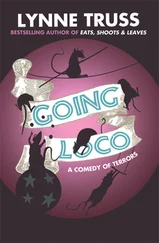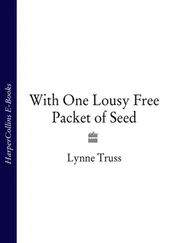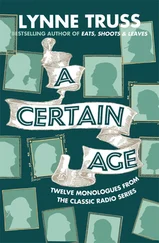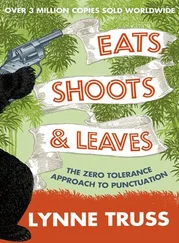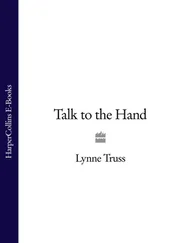(Incidentally, sorry to interrupt the flow, but for anyone thinking of adopting this pleasurable and essentially harmless daily routine, here are some tips. First, it is hard to imitate salmon unless you have a fairly high ceiling, for the leaping upstream. Kidneys and liver are indeed virtually impossible to impersonate, and should therefore be eliminated at the shopping-trolley stage. For high-class meals involving crab, one needs an energetic sideways scuttle, so clear all furniture first. The turkey impression comes to life splendidly if you can be bothered to tie empty red balloons to the sides of your head. Beef, lamb and duck are a doddle, obviously. And finally, a word of warning: if you find yourself trying to impersonate a chunk per se, you may have let things get out of hand.)
Anyway, in my initial alarm at this story, I kept thinking of that famous scene in Charlie Chaplin: the snow-bound cabin, the two companions ravenous, and the fat man with the heavy eye-liner hallucinating that the little fellow is a chicken. How ghastly to think this is happening in my own home – and not just when I am selflessly attempting to enliven mealtimes with a spot of one-sided Old MacDonald charades. When they watch me trotting to the shed, those cats just see a huge tin of Whiskas on legs. When I’m asleep, they see a huge tin of Whiskas, with legs, lying on its side.
But the interesting thing about the Shadwell story was the line, ‘The RSPCA had been called in, to destroy the cats.’ What? Destroyed? Why on earth would you do that? Suddenly all my sympathies swung the other way. These cats should be counselled for post-traumatic stress. It is a well-observed fact that in extremis human beings will cannibalize each other; and we don’t generally hand the bewildered survivors to a humane vet afterwards. These cats needed food, there was nothing depraved about it. Imagine you were locked in a Kellogg’s warehouse, and helped yourself to a few Rice Krispies to keep yourself alive. At the end of the week, the police burst in, and you say, ‘Thank God you’ve come, there’s not a drop of milk in this place, can you believe that?’ But they survey the scene – snap, crackle and pop all over the place – and shrink back, screaming. ‘CEREALS “EATEN” IN GRUESOME VEGETARIAN HORROR’ runs the headline in next week’s paper, and you are peremptorily taken out and shot.
The Single Woman Considers Going Out but Doesn’t Fancy the Hassle
I have been toying with an idea for a short story. It’s a variation on the film Thelma and Louise, in which a third, previously overlooked woman character (let’s call her Abigail) gets a phone call from Louise. ‘Git yer bags, honey, me and Thelma we’re headin’ fer the mountens.’ ‘Count me in,’ yells the feisty Abigail as the soundtrack swells with up-beat jive. She paints her lips, grabs a sweater, pulls on her cowgirl boots, swings through the door and then stops on the porch. Damn. The music ceases abruptly. She puts down her bag and kicks it. Damn again. What has she been thinking of? How can she go? How can she possibly go on a once-in-a-lifetime adventure with Louise and Thelma today – when she’s already started defrosting a chicken?
I intend to call the story ‘The Road More Travelled’, because I feel the majority of women will identify with Abigail the chicken lady. My sorrowful contention, in fact, is that butter it how you will, we are most of us chicken ladies – rationalizing inaction, inventing pathetic reasons not to do things. Why didn’t the chicken lady cross the road? Because she’d just done her toenails, of course. For every Thelma and Louise accelerating a big green Thunderbird into thin air above the Grand Canyon there are at least a million of us pressing our noses to wet wintry windscreens, deciding we can’t possibly take a five-minute detour on the way back from Ikea. ‘Got to get home!’ Why? ‘It’s bins night.’
The trouble with escape, I suppose, is that it must be dramatic and once-and-for-all; anything else is just holidays. For my own part, I have nothing particularly onerous at home to escape from – only newspaper deadlines, a neglected novel, an EastEnders addiction, and a punishing schedule of cats’ tea-times – yet I seem to battle constantly against powerful flight fantasies. I don’t mean drooling over economy fares to Delhi, either. I mean that regularly I drive in circles at Brighton’s orbital roundabouts, defying the lure of the home exit, and torturing myself with such exotic alternatives as ‘Worthing’ and ‘Shoreham’.
Yes, yes, make the break! Turn those wheels, baby! But then I glance at the clock on the dashboard and change my mind. Drat, half-past two, it will be dark in a couple of hours. If you’re going to run away from home, it’s better to hit the road first thing in the morning with a little bag of Marmite sandwiches and a banana. So I take the Brighton turn-off with a familiar mixture of self-loathing and relief, and head back by the usual route. ( Today’s unconvincing reason for not escaping: no banana.)
I hope I’m not talking to myself here, by the way. Perhaps some readers never entertain the ‘Ordinary Woman Completely Disappears’ fantasy; never dream of wearing dark glasses at night and crashing through road-blocks on the A27 at Chichester. But surely every woman turns down small adventures in favour of urgent ironing; says ‘Can’t’ when she really means something else. Perhaps we draw the line so quickly on outlandish opportunities because we fear otherwise it may not get drawn at all. Thelma and Louise discover what they’re capable of once they’re free, and it’s pretty alarming.
But back at my short story, I don’t know how it ends. I don’t know what happens to Abigail the chicken lady. In the movie, when Thelma and Louise drive at night through Monument Valley, you get that spooky old Marianne Faithfull song ‘The Eyes of Lucy Jordan’ about the woman who went bonkers because she always stayed home. ‘At the age of 37 / She realized she’d never / Drive through Paris in a sports car / With the warm wind in her hair.’ I have an idea that Abigail has no such regrets. She just continues to defrost the chicken, cooks it, suffers salmonella poisoning and dies – expiring just at the point when Thelma and Louise fly into their ravine. It’s a bit harsh, perhaps. But as Thelma and Louise showed, sometimes you have to be fairly dramatic to make a point.
In the new Penguin Book of British Comic Writing there is a short autobiographical essay by Elizabeth Bowen called ‘On Not Rising to the Occasion’. I recommend it highly, especially if your memory of childhood etiquette disasters is still so vivid it makes you feel like running to the hall and burying your face in an auntie’s funny-smelling coat. Elizabeth Bowen’s childhood was an Edwardian one, so she had proper guidance in suitable behaviour (she probably did not innocently repeat the word ‘git’ in company, as I did), but she still misjudged it sometimes in a very particular way: she ‘overshot the mark’. ‘Thank you, Mrs Robinson, so very, very much for the absolutely wonderful LOVELY party!’ she would say. ‘Well, dear,’ her hostess would reply with a frigid smile, ‘I’m afraid it was hardly so wonderful as all that.’
My own experience of childhood parties was a little different, since I felt awkward in the society of children and generally slipped out during pass-the-parcel to ask Mrs Robinson whether I could help with the washing up – which surprised her, especially if we hadn’t eaten yet. ‘No, you go and have a good time,’ she said, mystified, pushing me out of the kitchen with her leg. Thus, when it came to going-home time, I did not embarrass her with my effusions; I merely cried with relief. ‘Lynne tried to help with the washing up,’ she would inform my older sister, tapping her forehead significantly. ‘Funny,’ said my sister. ‘She doesn’t do that at home.’
Читать дальше
